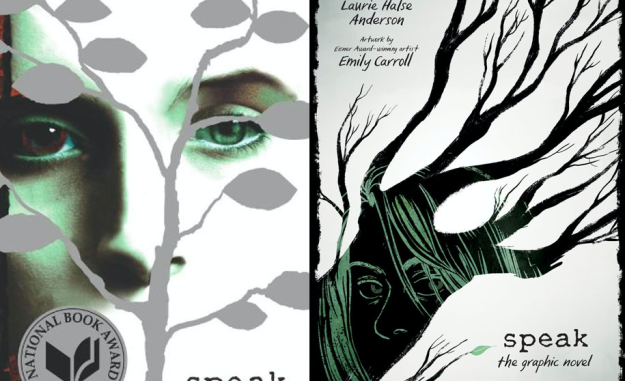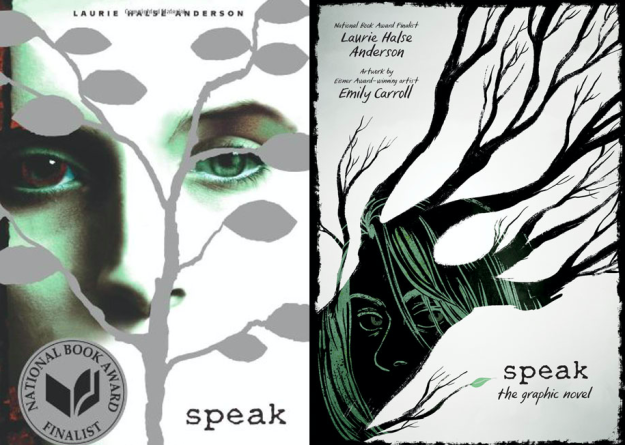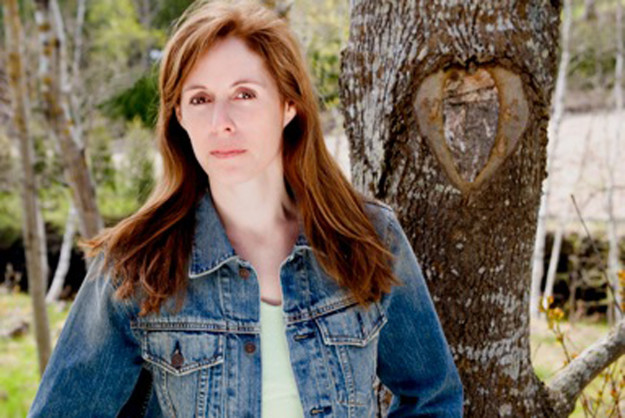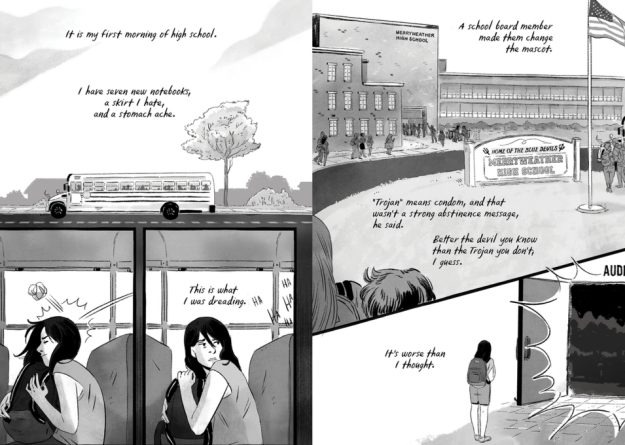

Square Fish Publishers / Macmillan Publishers
Almost 20 years ago, Laurie Halse Anderson’s book about a high schooler who descends into isolation after being raped started a new conversation about how sexual assault victims deal with the pain. But it took until now, as the #MeToo movement lurches forward, for a sea of change in how assault victims are treated and heard to start happening.
And that pisses Anderson off.
“I’m so fucking angry,” Anderson, the author of the 1999 novel Speak told BuzzFeed News. “On the one hand, you’re supposed to be joyful because we’re having these conversations. But from my perspective, why are we still stuck in this toxic patriarchy bullshit?”
Now, as the Great Reckoning continues to fell men in power who have previously benefitted from the silence of their alleged abuse victims, Anderson’s book is being published as a reinterpreted graphic novel of the same name.
Speak, a National Book Award Finalist that went on to win many other awards, was also adapted into a movie starring Kristen Stewart in 2004. But now, in graphic novel form, Anderson hopes readers come away with a better understanding of the main character’s pain.
The main character, Melinda Sordino, struggles through her freshman year after being raped at a summer party. Melinda calls the police, but is at a loss for words when they pick up the phone, so she flees the scene and the cops eventually break up the party.
Melinda didn’t have many friends to begin with, and the rest of her classmates were upset that she ruined their end-of-summer party without knowing why, so she goes into a depression and doesn’t speak all year long. She remains an outcast, communicating through her artwork until the end of the book when she tells her ex-best friend and her art teacher what happened.
“I’ve never met a woman who hasn’t, at some level, been harassed or touched or groped,” Anderson said. “It’s this giant scale of behavior, but I’ve never met a single woman who hasn’t been through that. What Speak has done for the past couple decades is open up a conversation for some people in a quiet way.”

Speak author Laurie Halse Anderson.
Courtesy Joyce Tenneson
Anderson said she’s glad the #MeToo movement is happening and that women feel empowered to speak up, but is also frustrated to watch such slow-moving progress.
“Thank goodness we have gotten to this point, and I think social media plays a big role in victims of sexual violence feeling strengthened and supported enough to start speaking out,” Anderson said. “But it’s about 800 years overdue, and I think, too, the power of right now is everyone seeing the positive consequence of speaking out.”
Anderson decided she wanted to work on the graphic novel, which was released on Feb. 6, in 2011 in collaboration with illustrator Emily Carroll.
Anderson said that in reformatting Speak, she hopes readers reflect on their own, individual experiences because “unacknowledged trauma is often at the root of a lot of mental illness, and we all want everybody to be as healthy as we can possibly be.”

Courtesy of Macmillan Publishers
“The narration is told by this depressed, traumatized young teen, and when you are dealing with depression that profound it’s hard even to articulate to yourself what’s going on,” Anderson said. “You’re just trying to get through the next hour. And so, having any kind of perspective about your own health is a challenge, and I think what Emily [Carroll]’s able to do in the graphic novel is show the readers even more clearly, ‘Wow, this kid’s really in a lot of pain.’”
According to Anderson, one of the positive aspects that can come from the #MeToo movement is teaching “several generations of real perpetrators that, ‘Yes, there are real consequences to your behavior and you can’t do this.'”
“There are a lot of guys that are having a hard time looking themselves in the mirror right now,” Anderson said. “And they need to step up.”
She also hopes this is a message that reaches her teenager readers as well as parents.
“This helps everybody begin to understand that we have to teach our kids about consent from day one,” she said. “We have to be really clear and honest with our kids about sexual intimacy and what that means.”
The larger conversations that are happening now and “all of these different loud demands for equality and justice” are enabling even more women to come forward, Anderson added.
“Maybe we should retitle it now,” she said of her novel. “Maybe the new title should’ve been Shout. ‘Cause that’s where we are now.”

